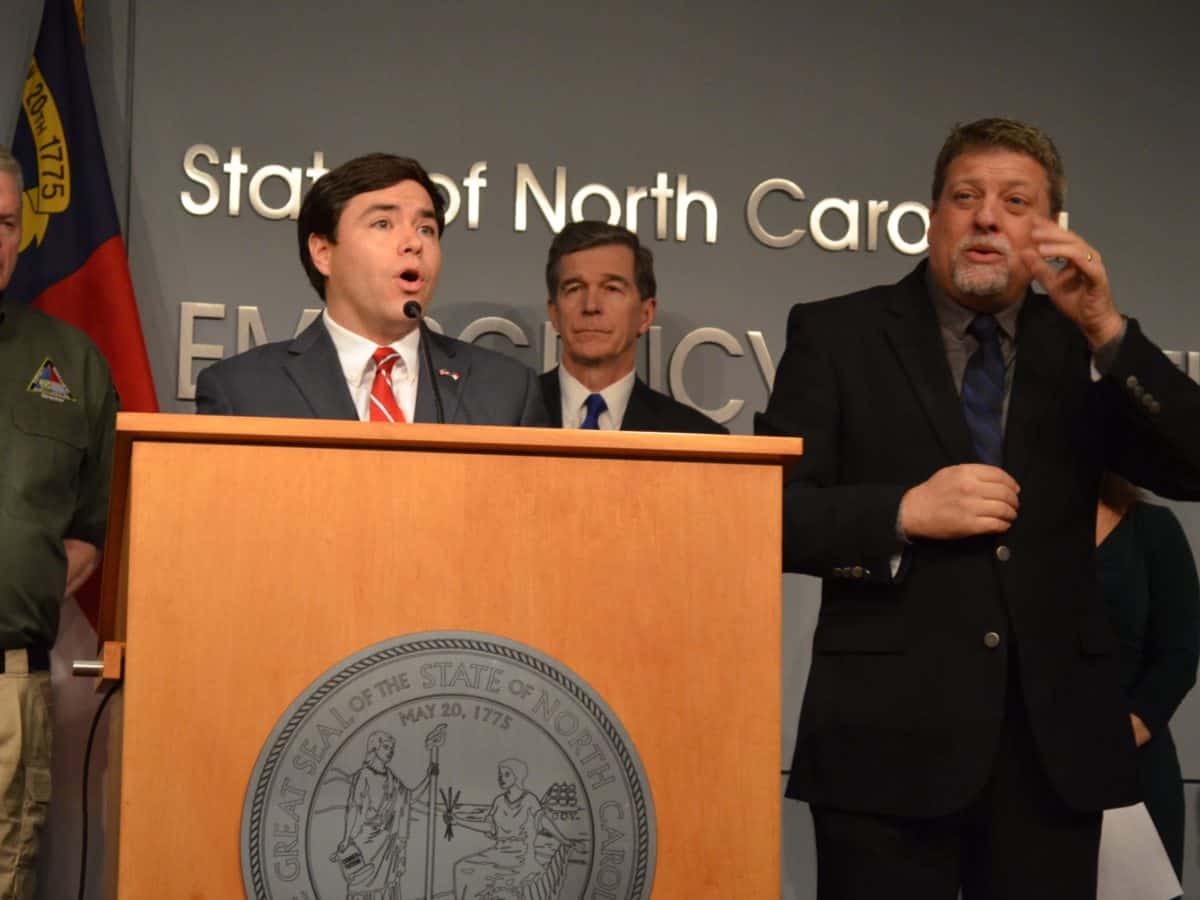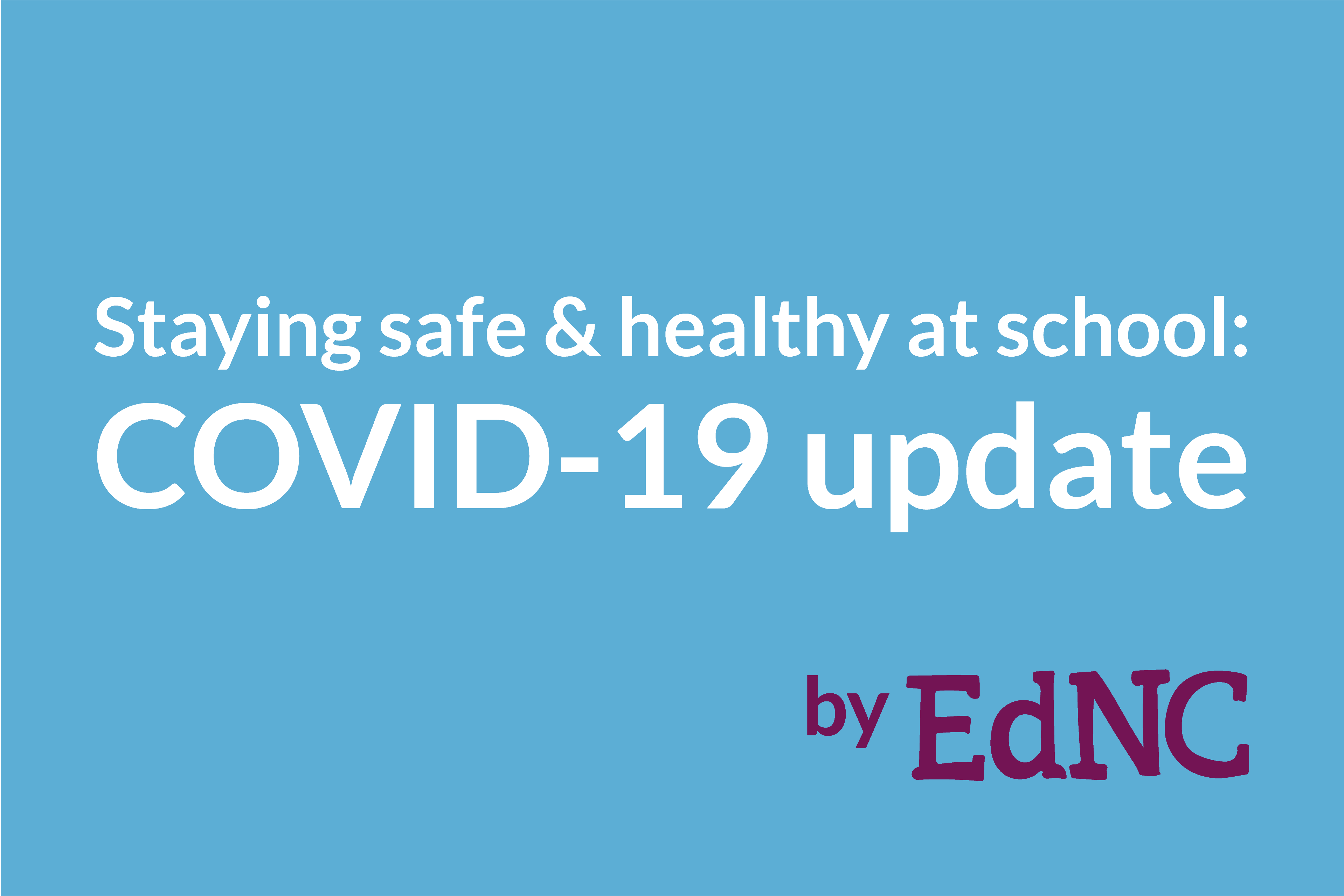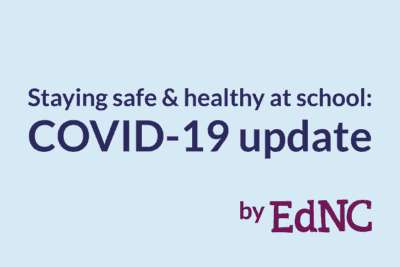
Gov. Roy Cooper announced at a press conference this afternoon that all North Carolina schools will close for at least two weeks starting this Monday, March 16 in an effort to curb the spread of COVID-19 (also known as a coronavirus).
Graham Wilson, director of communication and information services of the Department of Public Instruction, says about e-learning, “There are numerous resources available that can begin immediately.” Here is a webinar on resources and information for remote learning held on Friday, March 12.
The state’s announcement came shortly after Wake County Public Schools joined Orange County, Chapel Hill-Carrboro, and Durham Schools in deciding to shut down. Wake County Schools also announced today that a teacher at Fuquay-Varina Elementary School is confirmed to have COVID-19.
“Closing schools now will give us time for further understanding of COVID-19 and its effects on the people of our state,” Cooper said at the press conference. “These measures will also be tough on working parents and children who get their meals at school. We are working on efforts to deal with these challenges.”
Cooper said he has appointed an education and nutrition working group to come up with solutions related to child care, meal service, and other equity issues.
Cooper also said that during the school closures, teachers will continue to get paid.
Joining Cooper at the press conference were Superintendent of Public Instruction Mark Johnson and Chair of the Board of Education Eric Davis.
“The Board of Education commits to take any and all actions necessary or steps necessary to mitigate the impact,” Davis said.
He said the Board will seek flexibilities from federal and state law to make sure instruction can continue, as well as work with federal and state authorities to find options to continue meal service. He said the Board will also coordinate with the state Department of Health and Human Services on options for early childhood education services, as well as community colleges and institutions of higher learning to ensure that high school students in dual enrollment or Cooperative Innovative High Schools can continue to participate.
The Board also passed a resolution Saturday in support of the school closures.
Johnson said that the state Department of Public Instruction (DPI) began preparing last week for this eventuality and will continue to work with local districts.
“This is the decision that nobody wanted to see happen,” he said of the school closures. “But it is the right decision.”
Instruction is expected to continue in some form. Johnson pointed out the distance-learning webinar held on Friday as one way DPI was trying to help districts continue teaching. EdNC will give you more information about that webinar this week.
Cooper said the decision to close schools was made because the state needs time to figure out how to manage a statewide response to kids not being in school. He said it is difficult to manage that response when some school systems are out and others aren’t.
“We are seeing increased anxiety, fear: from parents, from teachers, from superintendents across our state. We’re seeing a patchwork of schools beginning to let out their schools. We have some parents keeping their kids from school,” he said, adding later: “I’m not sure there is a right or wrong decision here because there’s so much we don’t know.”
Both Davis and Johnson mentioned that the State Board and DPI will work on finding ways to get flexibility or waivers from regulations in state law related to education.
“I have instructed superintendents: do what is best for your students, your teachers, and families right now, and let us worry about the legislative repercussions later,” Johnson said.
House Speaker Tim Moore, R-Cleveland, released a statement shortly after the press conference in support of Cooper’s decision.
“While I know this is a decision no one wanted to make, under the circumstances this is the right thing to do for North Carolina at this time,” he said.
He also said that the General Assembly is ready to work with education officials.
“School systems and students can rest assured the state legislature will work closely with education officials to provide the flexibility and funding they need to respond to these rapid developments and keep North Carolina communities safe,” he said.




